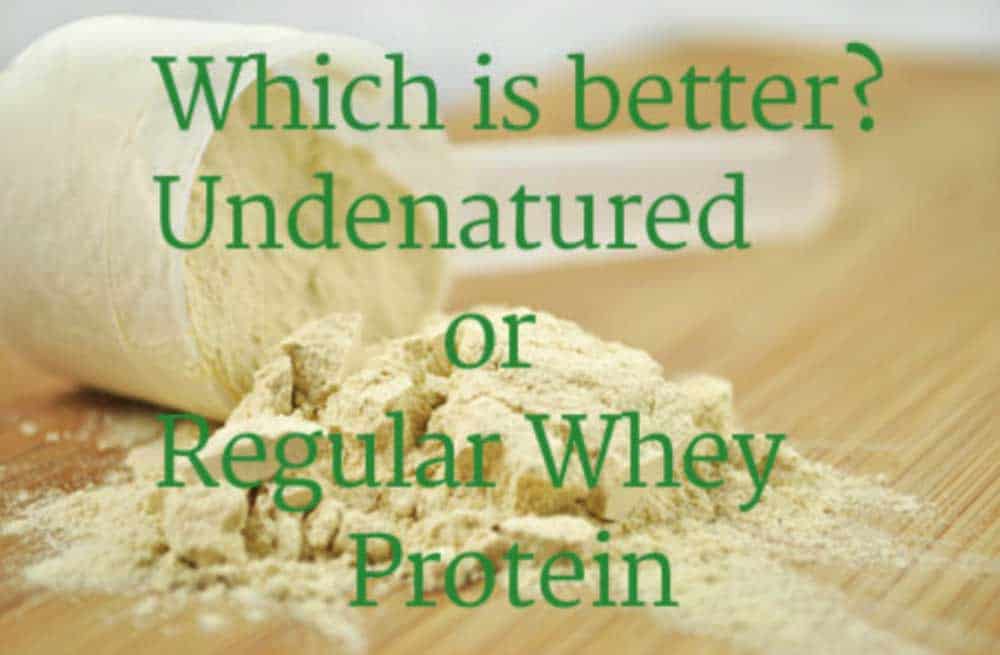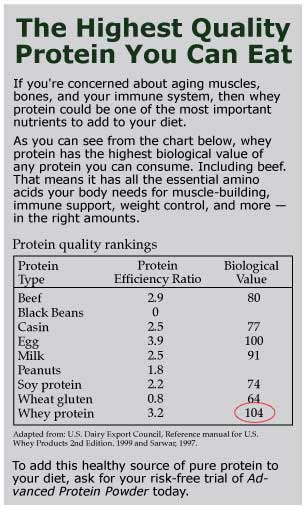It’s normal for our muscles to lose tone and become a bit flabby as we age. Flabby muscles are a sign that we’re losing muscle mass and strength, and the medical term for that is sarcopenia. Losing muscle mass makes it harder to do the things you take for granted and losing strength also makes you more prone to injuries that can keep you from enjoying the activities you’ve loved for years. It’s a major reason people lose mobility and end up in nursing homes. We all want to stay strong and vital for as long as possible. So many of us turn to exercise and while regular exercise is highly recommended, it’s often not enough! We need to feed our muscles, too, otherwise, it’s a waste of time.
We think you know by now what’s the best food for muscles? Protein! Your body craves protein for building muscles and for healing faster after a workout or an injury. Protein is a vital “building block” for enzymes, hormones, bones, skin, cartilage, and blood, too. The problem is, as we get older, it’s hard to get enough protein. The protein we do eat is not digested as well as when we were younger. Poor digestion means poor absorption. So you may think you’re eating plenty of protein but you’re still not getting enough into your muscles cells and tissues.


When it comes to keeping your muscles strong, you need a well-absorbed complete protein with all the necessary fats and amino acids. The top two sources are eggs and dairy; and of these two, one protein stands out more.
Ounce for ounce, whey protein from milk is the best muscle-building nutrient on the planet. That’s because it has the highest amount of protein for the fewest number of calories and the highest value of Leucine, which is the most important amino acid to repair muscle tissue. Out of the 20 amino acids in protein, only one, Lucien can activate a gene transcription factor called Mtor that makes muscle.
The Advantages Of Whey Protein
Whey protein contains all the amino acids your body needs, including the ones you have to get from your diet. Plus it’s easier to digest than beef or egg protein. So whey protein is absorbed faster into your bloodstream, where it can quickly help repair muscle tissues and build new fibers. But not all whey protein is created equal. Many whey products today are nutritionally deficient and over-processed. What’s more, many come from cows that have been fed growth hormones and antibiotics and all sorts of stuff you don’t want in your body.
So how can you get the benefits of whey protein and avoid these dangers? Here’s what we suggest to look for:
A whey protein concentrate, not an isolate. Isolate may have a slightly higher percentage of protein. But it’s more processed. So I prefer a whey concentrate, which still has the nutritional cofactors like healthy fats, lipoic acid and CLA (conjugated linoleic acid). These cofactors make whey concentrate a more complete and natural immune-boosting, whole food. Not an over-processed supplement ingredient.
Cold-Pressed / Undenatured Whey Protein
Cold-processed (undenatured). Cheap whey protein is often heated in the processing. Yes, heat destroys toxins and bacteria. But it also destroys some of the most important nutrients, like ALA and CLA (beneficial fats) plus l-cysteine, an amino acid that prevents your muscles from weakening. These nutrients promote muscle growth and tissue repair.
From grass-fed cows. Most dairy cows live in crowded, unsanitary conditions. They spend their days walking around dirt and manure “pastures.” They eat hay, not grass. Then we wonder why they’re given antibiotics to prevent disease!
Grass-fed cows, on the other hand, produce milk with higher amounts of immune-supporting nutrients like alpha and beta lactalbumin. And higher amounts of conjugated linoleic acid (CLA) that can protect your heart.
Free from toxins, including pesticides, herbicides, insecticides, and other chemicals we don’t even know about. Your cold-processed whey protein should also be ultra-filtered. That means it’s carefully filtered to remove impurities while preserving immune-supporting fats and amino acids. Manufacturers of cheap whey protein process their whey with acids, and the residue from these acids can be toxic.
Last, no artificial ingredients. Your protein powder should be sweetened with a natural sweetener like Stevia, instead of sugar or artificial sweeteners. For optimal results take at least 0.8-1.2 grams of protein per pound of body weight to maintain a healthy anabolic internal state. If you are exercising heavily its best suggested to consume 1.2 grams, and for those that are sedentary 0.8 grams of protein.


1 thought on “How to Choose the Best Protein Powder”
Thank you I have just been searching for information approximately this topic for a while and yours is the best I have found out so far However what in regards to the bottom line Are you certain concerning the supply